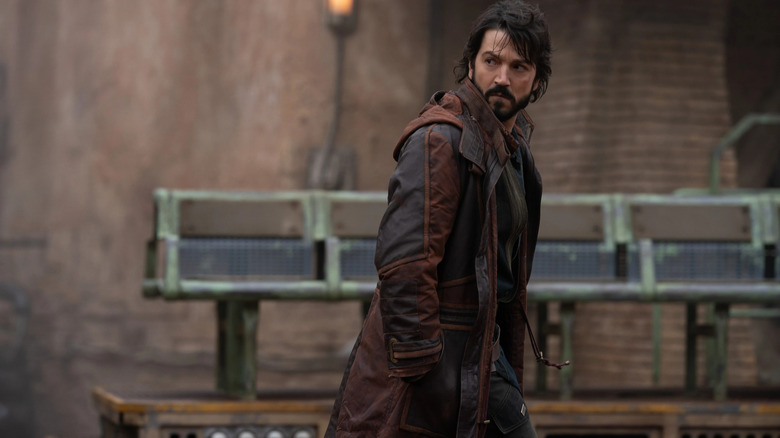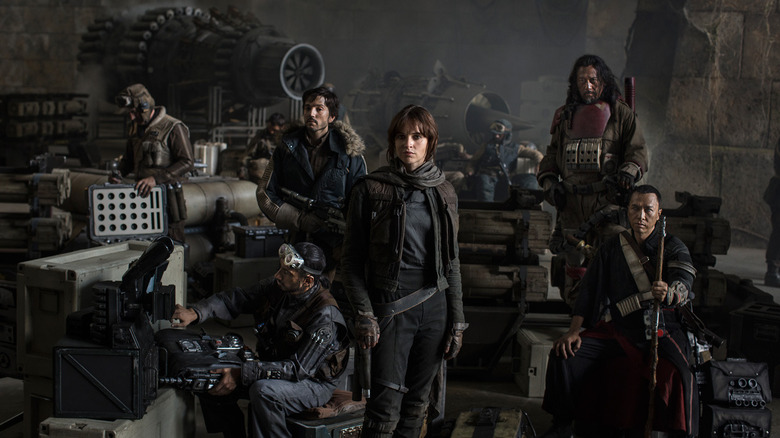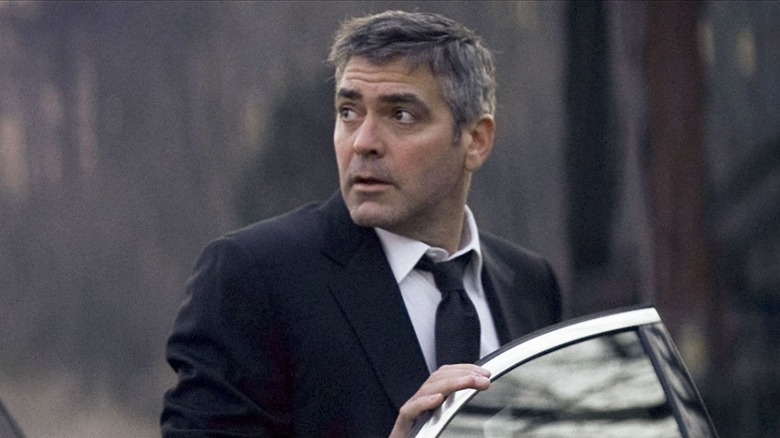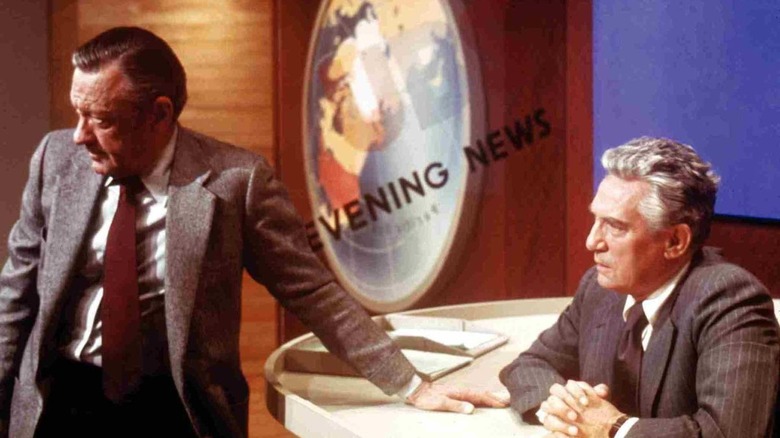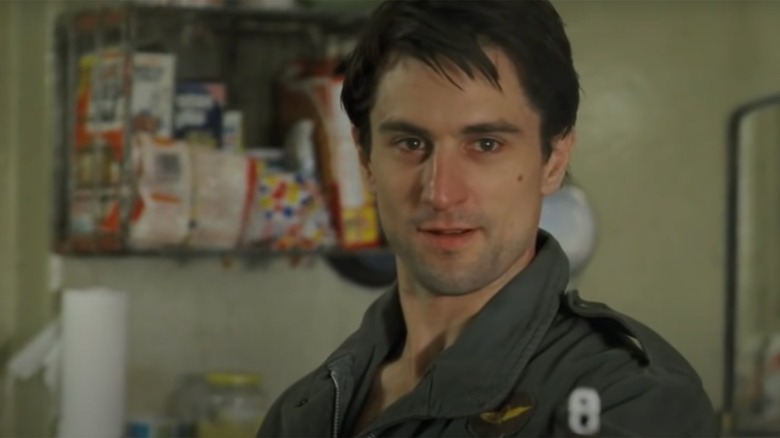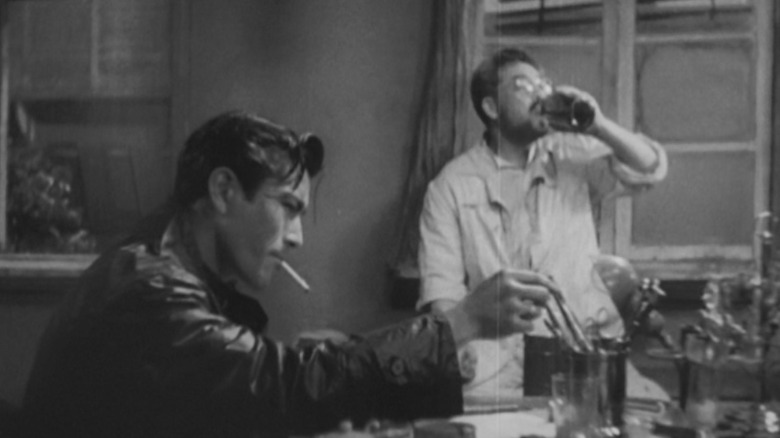Five Movies To Watch In Anticipation Of Star Wars: Andor
"Andor" is a completely different sort of "Star Wars" show on Disney+. Where other shows feel like they are, first and foremost, a "Star Wars" property with the influences of a filmmaker laid on top of it, "Andor" feels a bit like it's the other way around. Tony Gilroy is the first and foremost influence on the show and it feels like "Star Wars" is secondary to that. For those that love the show, it's not a bad thing, it's definitely a different energy to "Star Wars" and there are some different film touchstones that might help aid in your enjoyment of the series. If nothing else, watching these will create enjoyment for you independent of "Andor," as every single one is a masterpiece worth checking out for its own merits.
Rogue One: A Star Wars Story (2016)
A great place to start getting ready for "Andor" is the film that originated the character of Cassian Andor, "Rogue One" (the streaming series covers Cassian's beginnings). "Rogue One: A Star Wars Story" had reshoots and rewrites overseen by Tony Gilroy, who is now overseeing the "Andor" show, and Gilroy was an interesting choice as he has no particular reverence for "Star Wars." As he said on "The Moment With Brian Koppelman" podcast in 2018:
"I've never been interested in Star Wars, ever. So I had no reverence for it whatsoever. I was unafraid about that. And they were in such a swamp, they were in so much terrible, terrible trouble that all you could do was improve their position."
Whatever alchemy combined between versions of "Rogue One," it turned into something incredible and is now hailed as a classic in the "Star Wars" universe.
Michael Clayton (2007)
Tony Gilroy's 2007 slow burn masterpiece "Michael Clayton" is very much in the same vein as "Andor." Context is built slowly and the story unfolds in a crushing, deliberate manner. The performances are top notch and the entire film ends with a bang. It's a very grown-up form of storytelling that, to me, feels rooted in the gritty dramas of the 1970s. With George Clooney leading a dynamite cast that includes Tilda Swinton, Sydney Pollack, and Tom Wilkinson. It's beautifully written, beautifully acted, carefully paced, and worth a watch for any cinephile, let alone "Star Wars" fans knowing what to expect tonally and pacing-wise for "Andor."
Network (1976)
Though the subject matter of "Network," "Michael Clayton," and "Andor" couldn't be more different, the style of storytelling is all in the same spirit. Directed by Sidney Lumet and written by Paddy Chayefsky, "Network" exemplifies some of the best dramatic filmmaking of the 1970s. There's a scene in the fourth episode of "Andor" in particular that felt ripped right out of Lumet's masterpiece, recasting Mon Mothma in the role of William Holden in a very powerful domestic scene. There's a stillness to the scenes that hold power, and the team behind "Andor" manage to imbue their show with similar energy and quality of performance. And, at the end of the day, both stories involve desperate, fed-up people doing something to change their plight.
Taxi Driver (1976)
Though Travis Bickle is much more forgotten by society than Cassian Andor, watching Diego Luna travel through space in his nascent days as a saboteur and potential spy the spiritual links between the characters are apparent. Like Travis, Cassian Andor — over the course of his life — finds himself a ne'er-do-well who happens to be in the right place at the time to be hailed as a hero. That same listlessness that Martin Scorsese imbues into the unmoored life of Travis Bickle feels present with Cassian as he navigates his own agenda in a solitary fashion. The way Luna is photographed in these early episodes feels very much like the long slow shots of Travis making his way through the trash-strewn streets of New York. It's easy to imagine both Cassian and Travis wishing for a rain to wash the trash away.
Drunken Angel (1948)
If George Lucas's chief inspiration for "Star Wars" was Akira Kurosawa, his touchstone was "The Hidden Fortress" or "Seven Samurai." For Tony Gilroy and the crew behind "Andor," that touchstone of Kurosawa feels shifted to something darker, like Kurosawa's 1948 classic, "Drunken Angel." Starring Takashi Shimura as a drunken street doctor and Toshiro Mifune as a tougher than anything gangster, sick with TB and unable to help himself, it shows a post-war Tokyo that feels glossed over in the history books. After the firebombings of Japan during World War II and the destitution the Americans left the cities in, the locale of this Kurosawa masterpiece looks like a bombed-out war zone where people are still trying to pick up the pieces of their lives. That entire attitude and aesthetic are realized fully in the first three episodes of "Andor." Since this might be one of Kurosawa's best, it's always worth a watch, and not just because of the "Star Wars" connection. Mifune and Shimura may not have ever been better in a Kurosawa film and every interaction they have is electric.
